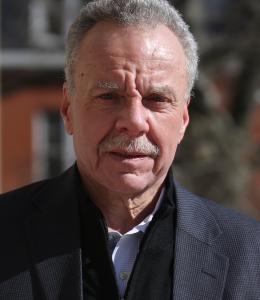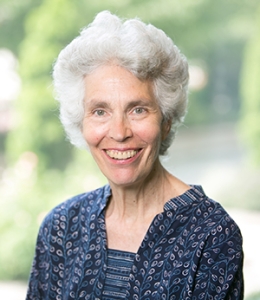This clinic is no longer offered.
Clinic Description
Now more than ever, the ability of lawyers to use technology thoughtfully and creatively is critically important. Those who can help leverage already substantial investments in technology bring much sought after added value to their employers. That is why leaders of the bar, judges, and the most prestigious public interest organizations turn to students in the Lawyering in the Digital Age Clinic for help with pressing challenges.
Instructor: Conrad A. Johnson, Clinical Professor of Law
Experiential Credits: 7 credits (3 seminar; 4 fieldwork)
The Clinic has pioneered the study of how technology affects the practice of law since it began in 2001.Through hands-on experience students learn both:
- Traditional lawyering skills; – interviewing, counseling, drafting and
- Contemporary skills – including online fact-investigation, digital presentation, working with clients in hybrid settings.
- NOTE: This semester the Clinic offers extensive opportunities to work with AI to serve clients.
You will have substantial client contact in the Clinic. Note, that we have a long history of collaborating closely with our clients online where appropriate. Challenges such as those posed by 9/11, hurricane Sandy and COVID-19, while devastating, have had little effect on our ability to serve our clients.
The Seminar
In twice-weekly seminar sessions, we explore a structured framework for learning the habits of mind and skills of contemporary practice. The seminar provides a safe setting for achieving digital literacy and applying it to the work you will do wherever your career leads. Through exercises and thoughtful discussion, you will learn core lawyering skills to last a lifetime.
Fieldwork
The work you do with your clients provides an outlet for applying what you learn in the seminar. Our clients are public interest legal organizations, prominent jurists and non-profit legal technology initiatives that have a serious interest in integrating technology to improve access to justice. Through client representation, students gain proficiency to practice at a high level in the digital age. Throughout, we emphasize how to use technology to help make the very human encounters we have with our clients and colleagues satisfying and productive.
You will be closely supervised through weekly team meetings, where you will receive the support and individualized feedback you need to achieve our learning goals while delivering the highest quality client service. Team meetings provide you an opportunity to collaborate closely with your clinic colleagues and your clients.
Sample projects include:
- Helping civil legal aid and legal services attorneys meet the massive challenges of implementing NYC’s new “right to counsel” initiative for low-income New Yorkers in eviction proceedings.
- Using AI to improve access to justice in a variety of settings.
- Created an online portal to help millions of low and middle-income workers secure billions in Earned Income Tax Credits
- Work with a charter school in East Harlem to use technology to disrupt the school-to-prison pipeline.
- In conjunction with New York’s Chief Judge, developed the Collateral Consequences Calculator that shows the immigration consequences of conviction for all sections of NY’s Penal Law.
Students emerge from the Clinic with a combination of contemporary legal and technical skills that give them a considerable professional edge as they enter the practice of law.
Important Information
The Clinic will be limited to 8 students and will be open to JD and LL.M candidates. There are no prerequisites to take the Clinic. We actively seek both students who feel they have no particular technological expertise, as well as students who are looking for opportunities to put their understanding of technology to good use. If you have questions, please email Professor Johnson at [email protected]

